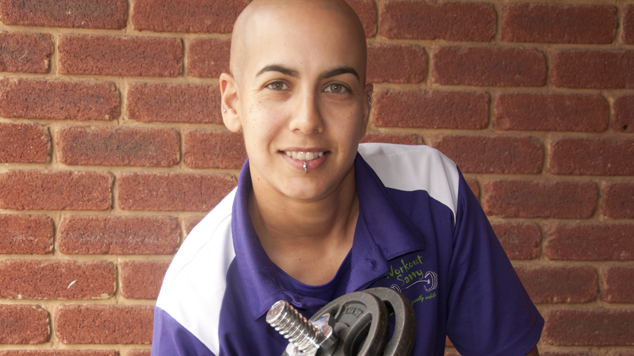 The impact the media has on the health and fitness industry is astronomical.
The impact the media has on the health and fitness industry is astronomical.
Thanks to shows such as ‘The Biggest Loser’, terms like caloric deficit, clean eating and metabolic rate are recognised by many households.
‘The Biggest Loser’ debuted in Australia in 2006, and when I started my fitness business in early 2009 the knock-on effects were already evident. The positive impacts include people eating healthier, generally being more active, and joining gyms and boot camps. Most now have a better understanding of suitable portion sizes and how detrimental the American super-sized diet can be.
But, there’s a flipside … Too many people now believe that exercising once a week and not making any other lifestyle changes is going to give them the same phenomenal results gained by contestants on The Biggest Loser. The contestants on these shows workout for over four hours a day and have trainers and dieticians watching everything they eat. These training patterns and the results, while making for good viewing, don’t promote lifestyle habits that lead to a healthy rate of weight loss, or that are sustainable long term. What happens when these contestants return to their own lives or get sick or injured?
As a result of these shows people generally believe that faster and harder is a better approach to fitness. They are also often unaware of the importance of technique and control, and that the absence of these almost inevitably leads to posture problems and injuries.
‘The Project’ aired a segment recently (18.03.2013) about how low carbohydrate diets are bad for you. I believe they neglected their journalistic duties and didn’t give a balanced report of the research available. Rather than providing information to enable viewers to make an informed decision, they said carbs were good for you, end of story. They failed to state there are ‘good’ and ‘bad’ carbs, or that carbs are needed to fuel our bodies during endurance exercise, or that generally speaking the risk to healthy eating is that we tend to base our meals around large quantities of poor quality (highly processed) carbs.
Another recent media story was of BBC reporter Andrew Marr who had a stroke from ‘exercising too much’—a high-intensity cardio workout on a rowing machine where he ‘gave it everything [he] had’. Several articles following this incident claimed that exercise is bad for people. Can you imagine?! The benefits of aerobic activity far outweigh any adverse affects. If one man has a stroke after high intensity exercise is this proof that people should ‘be wary of rowing machines’? Had this 53-year-old smoker had the appropriate medical checks before engaging in physical activity? Had he gradually increased his fitness and the intensity of his workouts?
In my opinion the media needs to be more careful when making blanket statements and giving misleading representations. There should be some duty of care when giving ‘information’ on a topic that can make a big difference to the health of the consumer. And the consumer needs to take these reports, shows and statements with a grain of salt and do further research.
Sav Adele
Workout Savvy
Read More ‘Lets Get Physical’06-05-2013 Fitness on a Budget
08-04-2013 Old Dogs New Tricks
04-02-2013 Preparing for an event




